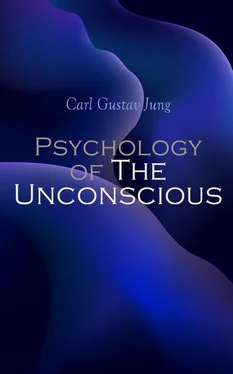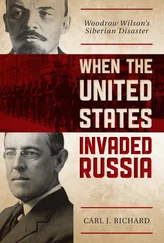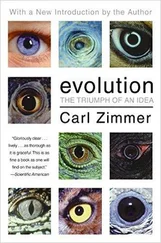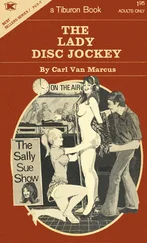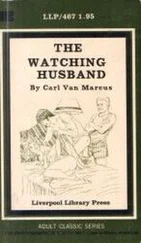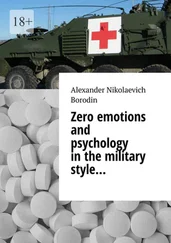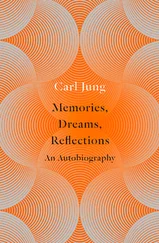With further investigation Freud found that hypnosis was unnecessary for the revival of the forgotten experiences, and that it was possible to obtain the lost emotional material in the conscious and normal state. For this purpose the patient was encouraged to assume a passive, non-critical attitude and simply let his thoughts flow, speaking of whatever came into his mind, holding nothing back. During this free and easy discussion of his life and conditions, directed by the law of association of ideas, reference was invariably made to the experiences or thoughts which were the most affective and disturbing elements. It was seen to be quite impossible to avoid this indirect revelation because of the strength of the emotions surrounding these ideas and the effect of the conscious wish to repress unpleasant feelings. This important group of ideas or impressions, with the feelings and emotions clustered around them which are betrayed through this process, was called by Jung a complex .
However, with the touching of the complex which always contains feelings and emotions so painful or unpleasant as to be unacceptable to consciousness, and which are therefore repressed and hidden, great difficulties appeared, for very often the patient came to a sudden stop and could apparently recall nothing more. Memory gaps were frequent, relations twisted, etc. Evidently some force banished these memories so that the person was quite honest in saying that he could remember nothing or that there was nothing to tell. This kind of forgetfulness was called repression , and is the normal mechanism by which nature protects the individual from such painful feelings as are caused by unpleasant and unacceptable experiences and thoughts, the recognition of his egoistic nature, and the often quite unbearable conflict of his weaknesses with his feelings of idealism.
At this early time great attention was given towards developing a technique which would render more easy the reproduction of these forgotten memories, for with the abandonment of hypnosis it was seen that some unknown active force was at work which not only banished painful memories and feelings, but also prevented their return; this was called resistance . This resistance was found to be the important mechanism which interfered with a free flow of thought and produced the greatest difficulty in the further conduct of the analysis. It appeared under various guises and frequently manifested itself in intellectual objections based on reasoning ground, in criticism directed towards the analyst, or in criticism of the method itself, and finally, often in a complete blocking of expression, so that until the resistance was broken nothing more could be produced.
It was necessary then to find some aid by which these resistances could be overcome and the repressed memories and feelings revived and set free. For it was proven again and again that even though the person was not at all aware of concealing within himself some emotionally disturbing feeling or experience with which his symptoms were associated, yet such was the fact, and that under proper conditions this material could be brought into consciousness. This realm where these unknown but disturbing emotions were hidden was called the “Unconscious”—the “Unconscious” also being a name used arbitrarily to indicate all that material of which the person is not aware at the given time—the not-conscious.
This term is used very loosely in Freudian psychology and is not intended to provoke any academic discussion but to conform strictly to the dictionary classification of a “negative concept which can neither be described nor defined.” To say that an idea or feeling is unconscious merely means to indicate that the individual is unaware at that time of its existence, or that all the material of which he is unaware at a given time is unconscious.
With the discovery of the significance in relation to hysteria of these varied experiences and forgotten memories which always led into the erotic realm and usually were carried far back into early childhood, the theory of an infantile sexual trauma as a cause of this neurosis developed. Contrary to the usual belief that children have no sexuality and that only at puberty does it suddenly arise, it was definitely shown that there was a very marked kind of sexuality among children of the most tender years, entirely instinctive and capable of producing a grave effect on the entire later life.
However, further investigations carried into the lives of normal people disclosed quite as many psychic and sexual traumas in their early childhood as in the lives of the patients; therefore, the conception of the “infantile sexual trauma” as the etiological factor was abandoned in favor of “the infantilism of sexuality” itself. In other words, it was soon realized that many of the sexual traumas which were placed in their early childhood by these patients, did not really exist except in their own phantasies and probably were produced as a defence against the memories of their own childish sexual activities. These experiences led to a deep investigation into the nature of the child’s sexuality and developed the ideas which Freud incorporated in a work called “Three Contributions to the Sexual Theory.” He found so many variations and manifestations of sexual activity even among young children that he realized that this activity was the normal, although entirely unconscious, expression of the child’s developing life, and while not comparable to the adult sexuality, nevertheless produced a very definite influence and effect on the child’s life.
These childish expressions of this instinct he called “polymorphous perverse,” because in many ways they resembled the various abnormalities called perversions when found among adults under certain conditions.
In the light of these additional investigations Freud was led to change his formulation, for instead of the symptoms of the neurotic patient being due to definite sexual experiences, they seemed to be determined by his reactions towards his own sexual constitution and the kind of repression to which these instincts were subjected.
Perhaps one of the greatest sources of misunderstanding and difficulty in this whole subject lies in the term sexuality, for Freud’s conception of this is entirely different from that of the popular sense. He conceives sexuality to be practically synonymous with the word love and to include under this term all those tender feelings and emotions which have had their origin in a primitive erotic source, even if now their primary aim is entirely lost and another substituted for it. It must also be borne in mind that Freud strictly emphasizes the psychic side of sexuality and its importance, as well as the somatic expression.
Therefore, to understand Freud’s theories, his very broad conception of the term sexual must never be forgotten.
Through this careful investigation of the psychic life of the individual, the tremendous influence and importance of phantasy-making for the fate was definitely shown. It was discovered that the indulgence in day-dreams and phantasies was practically universal not only among children but among adults, that even whole lives were being lived out in a phantastic world created by the dreamer, a world wherein he could fulfil all those wishes and desires which were found to be too difficult or impossible to satisfy in the world of reality.
Much of this phantasy thinking was seen to be scarcely conscious, but arose from unrealized wishes, desires and strivings which could only express themselves through veiled symbols in the form of phantastic structures not understood, nor fully recognized. Indeed, it is perhaps one of the most common human experiences to find “queer thoughts,” undesired ideas and images, forcing themselves upon one’s attention to such an extent that the will has to be employed to push them out of mind. It is not unusual to discover long-forgotten impressions of childhood assuming a phantastic shape in memory, and dwelt upon as though they were still of importance.
Читать дальше
